the AI AI is transforming digital marketing by enabling businesses to deliver personalized experiences, enhance customer engagement, and improve efficiency. AI programs analyze vast amounts of data to create targeted marketing strategies, optimizing campaigns based on customer behavior. One of the key tools in digital marketing is chatbot, which automates customer interactions, providing instant responses and support. This not only improves user experience but also increases conversion rates. AI also helps in predictive analytics, allowing marketers to anticipate trends and customer needs, resulting in more effective campaigns. Additionally, AI streamlines content creation and curation, helping marketers produce relevant and engaging material.
1. AI in Digital Marketing: An Overview
AI has become a cornerstone of modern digital marketing strategies. By analyzing vast amounts of data, AI allows marketers to automate repetitive tasks, gain deeper insights into consumer behavior, and personalize marketing efforts like never before. The ability of AI to process and analyze data at lightning speeds gives marketers a competitive edge, enabling them to optimize campaigns and improve ROI (Return on Investment).
2. AI Chatbots: Enhancing Customer Interaction
One of the most prominent uses of AI in digital marketing is the integration of AI chatbots. These AI-powered virtual assistants are able to engage with customers in real-time, answering queries, offering recommendations, and providing personalized experiences.For businesses, AI chatbots are a game-changer. They help save time by automating customer service tasks and are available 24/7 to assist potential customers. Whether it’s answering frequently asked questions, guiding users through a purchase journey, or collecting customer feedback, AI chatbots make interactions faster, more efficient, and more satisfying for customers

3. AI-Driven Personalization
Another crucial application of AI in digital marketing is personalization. AI programming enables marketers to create tailored experiences for users by analyzing data on their browsing behavior, purchase history, and demographic information. With AI, businesses can deliver personalized email campaigns, targeted ads, and product recommendations that are specifically designed to meet individual customer preferences.By leveraging machine learning algorithms, AI can continually improve these personalized experiences over time, ensuring that the content remains relevant and engaging for the audience. This leads to higher customer satisfaction and, ultimately, greater conversion rates
4. Predictive Analytics for Better Decision Making
AI’s ability to process and analyze large datasets also facilitates predictive analytics. By analyzing historical data, AI can forecast future trends, helping businesses make informed decisions about where to allocate their resources for the best results. This can apply to areas such as content marketing, ad spend optimization, and social media strategy.For example, by understanding how certain factors impact customer behavior, AI can predict the likelihood of a lead converting into a customer and suggest the optimal timing for follow-up communications. This not only improves marketing efficiency but also helps marketers understand which strategies yield the best resultsvv
5. AI in Content Creation and Optimization
AI is also making its mark on content creation. With the help of advanced AI tools, marketers can generate high-quality content more efficiently. AI can help write blog posts, create social media content, and even design ads. By automating the content creation process, AI saves time and allows marketers to focus on more strategic tasks.Furthermore, AI can be used for content optimization. Through AI-driven analytics, businesses can identify which types of content perform best on specific platforms and with different audiences. This allows marketers to tailor their content strategy and ensure maximum engagement across digital channels.
6.Ai in ad targeting and campaign management
AI has significantly improved the way digital ads are targeted and managed. With the power of machine learning algorithms, AI can analyze vast amounts of data to identify the most promising customer segments and optimize ad placements accordingly. This helps businesses run more effective ad campaigns with lower costs and higher conversion rates.For instance, AI programming can help optimize bidding strategies in real-time, adjust ad targeting based on audience behavior, and even A/B test different ad creatives to see which resonates most with customers. As a result, marketers can achieve a higher return on their advertising investment.
7.Automating and Optimizing Marketing Workflows
AI enables the automation of repetitive tasks, which streamlines workflows and allows marketers to focus on strategy and creative endeavors. For example, AI tools can schedule social media posts, automate email sequences, and optimize content distribution, saving time and ensuring consistent messaging across multiple platforms.By automating these processes, businesses can stay ahead of the competition and offer a more seamless and responsive experience to their audience.
Conclusion
As AI continues to advance, its role in digital marketing will only grow. From AI chatbots that engage customers to predictive analytics that inform marketing decisions, AI has become an invaluable asset for businesses looking to optimize their marketing efforts and improve customer relationships. By harnessing the power of AI programming, companies can take their digital marketing strategies to the next level, delivering more personalized, efficient, and data-driven campaigns.Incorporating AI into your marketing toolkit isn’t just a trend – it’s becoming a necessity for staying competitive in the digital landscape. As AI continues to evolve, the opportunities for innovation in digital marketing are limitless, making it an exciting time for businesses and marketers alike
Article credit – samirul shaikh | student of digital marketing course
